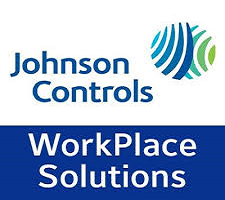September 30, 2014
Global Workplace Solutions to leave Johnson Controls’ portfolio
 Facilities services provider Global Workplace Solutions (GWS) is to leave the Johnson Controls portfolio following the parent company’s decision to concentrate on manufacturing, engineering and product-based, rather than services-based businesses. GWS, which provides facilities, corporate real estate and energy management, has been part of Johnson Controls’ portfolio for more than 20 years, and currently manages more than 1.8 billion square feet of corporate real estate. “We have a strong reputation in the market, an incredibly talented team of employees, and a portfolio of long-standing high-quality clients,” said John Murphy, vice president and president, GWS. “Our business has only just begun to realize its full potential. With a new owner we will have access to the capital and resources required to continue to strengthen our business and be a formidable force in the market.” (more…)
Facilities services provider Global Workplace Solutions (GWS) is to leave the Johnson Controls portfolio following the parent company’s decision to concentrate on manufacturing, engineering and product-based, rather than services-based businesses. GWS, which provides facilities, corporate real estate and energy management, has been part of Johnson Controls’ portfolio for more than 20 years, and currently manages more than 1.8 billion square feet of corporate real estate. “We have a strong reputation in the market, an incredibly talented team of employees, and a portfolio of long-standing high-quality clients,” said John Murphy, vice president and president, GWS. “Our business has only just begun to realize its full potential. With a new owner we will have access to the capital and resources required to continue to strengthen our business and be a formidable force in the market.” (more…)























September 25, 2014
Why a more flexible approach to where and when we work is long overdue
by Sara Bean • Comment, Facilities management, Flexible working, News